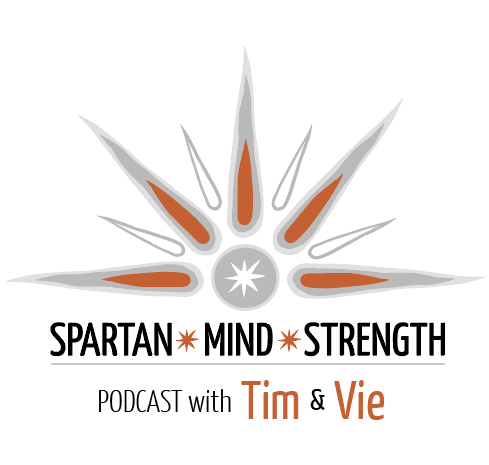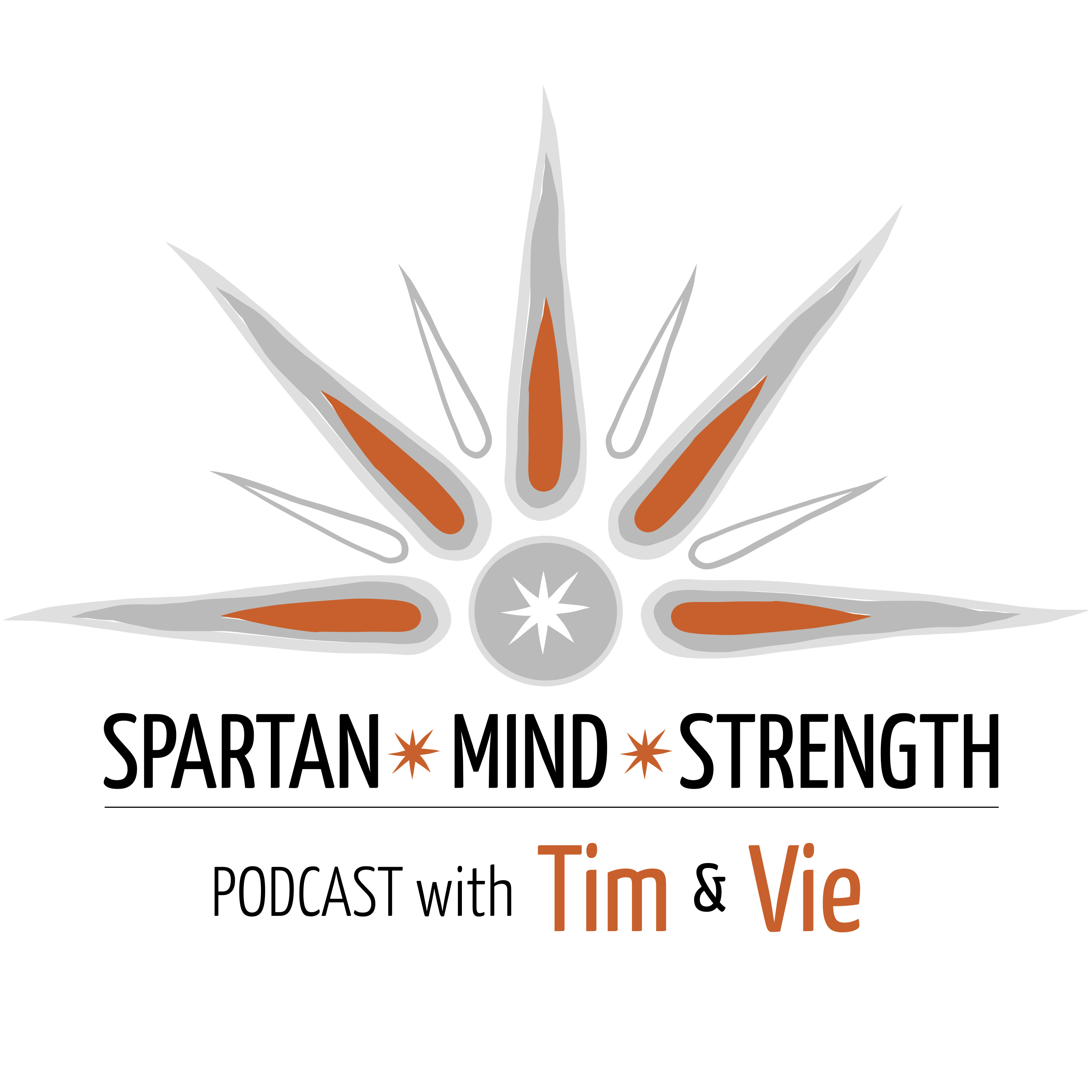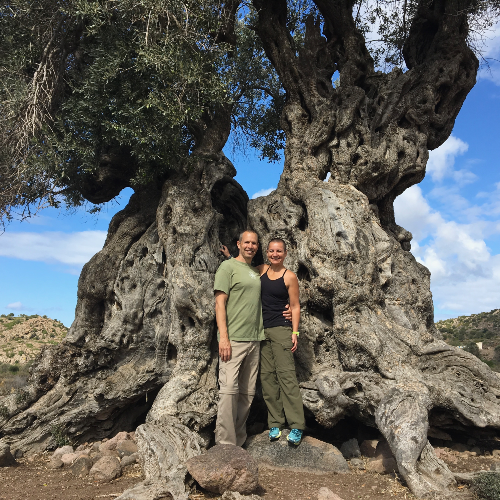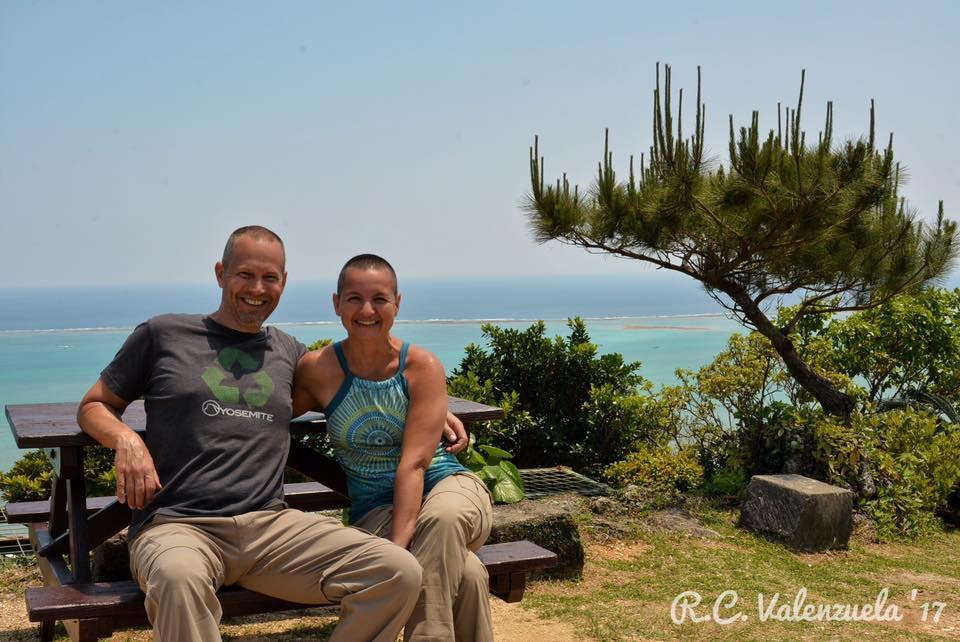Episode 117
The Upanishads In A Nutshell Part 1 | Ayurveda and the Upanishads
Episode Topics
- What does the word Upanishad mean?
- What are the Vedas?
- Ayurveda in terms of the Upanishads
- Yoga in terms of the Upanishads
- Hatha Yoga in terms of the Upanishads
- The value of the Upanishads today
- You are not your body, emotions or mind
- The only constant in an ever changing world is your Buddhi
- 200-hr Yoga Alliance Registered Teacher Training for $381.90
- 300-hr Yoga Alliance Registered Teacher Training for $488.90
- Find us on YouTube at: https://www.youtube.com/c/AskTimAndVie
- Email us your feedback and any questions you may have at: ask.tim.and.vie@gmail.com
- You can help support our Podcast by giving as little as $1 per episode, our PayPal account is here: https://www.paypal.com/cgi-bin/webscr?cmd=_s-xclick&hosted_button_id=7FDYKCGSKL3NL&source=url
- May we all be well, adapt and thrive! - Tim and Vie
Other Resources
This series is brought to you by Yoga Energy School. It can be found at http://YogaEnergy.com
Yoga Energy School is offering Private Online Yoga Alliance registered 200-hr and 300-hr teacher trainings and continuing education. They can be found at http://YogaEnergy.com
Find us on YouTube at: https://www.youtube.com/c/AskTimAndVie
Did you subscribe to the podcast?
Did you share this episode with all your friends?
Email us your feedback at: ask.tim.and.vie@gmail.com
May we all be well, adapt and thrive! - Tim and Vie
For Yoga Alliance Registered Instructors
Earn CEUs here: http://YogaEnergy.com
Disclaimer
All information provided here is for informational and educational purposes only, and is not to be construed as medical advice or instruction. No action should be taken solely on the contents of this Podcast. Please consult your physician or a qualified health professional on any matters regarding your health and well being or on any opinions expressed within this Podcast.
You assume all responsibilities and obligations with respect to any decisions, advice, conclusions or recommendations made or given as a result of the use of this Podcast.
Audio Transcript
Because the Upanishads are so intense, we’re just going to do 10 minute talks. So this is going to be the start of the Upanishads in a nutshell.
What does the word Upanishad mean?
Upanishads has a couple of different translations actually, because it’s a Sanskrit word. In Sanskrit, every word is like a mini dictionary, the meaning depends on the context. It depends on how you use it.
So Upanishads can mean to sit by, to sit by a teacher at the time and listen to what they are saying. But that teacher was not just someone random, that teacher was one of the ancient sages that were actually reciting - because at the time nothing was written, everything was transmitted orally - a teacher who was reciting the ancient wisdom of the Vedas. But not just the Vedas, it was a particular chapter of the Vedas, say a particular section.
What are the Vedas?
So the Vedas are, again it’s a Sanskrit word, and the Vedas are four main books. And it’s the oldest documented philosophy that we have. The word Veda means to have seen, as in “to know”. It’s actually very similar to a Greek word, the Greek word “oida” which means “I have seen”, Indo-European languages.
So the Upanishads come from the Vedas, the Vedas are the oldest written philosophy or science or whatever you want to call it, out. And the Upanishads is a section of each of the Vedas.
And what do they basically, I know it’s more than just basically, but can you give me a quick understanding of the Upanishads?
Yes, the Upanishads say, okay. most of the Vedas talk about all the rituals and gods and universe and higher force and all the sacrifices we should be making to please the gods and whatever, whatever.
But what about us as human beings right here, right now? What’s going on with us? Who are we in relation to all the stuff that the Vedas talk about?
So instead of being afraid and concerned about those higher forces that govern everything we do, let’s see what’s going on with us inside us. And what can we do?
We are not any lesser than the gods the Vedas talk about, because we are here. So we must matter. So that’s where the Upanishads come in. The Upanishads give the power to the human being. The Upanishads are about the human being, understanding how much power they have within themselves in order to do greatness in this lifetime.
All right. And, Ayurveda is part of the Upanishads?
Ayurveda is part of one of the Vedas, the Atharva Veda, the newest Veda and Ayurveda is okay, we have this body, how can we use it in the best way we can, to do greatness in this lifetime..
What is yoga as far as the Vedas? We know that yoga is not part of Ayurveda. Is yoga part of the Vedas or the Upanishads?
Yoga, actually yoga as it is written by Patanjali — because that’s where yoga is first actually formally documented in the Patanjali Sutras — Yoga is a lot newer than Ayurveda and a lot newer than the Upanishads.
So yoga is a modern phenomenon. It’s not ancient wisdom. You can call it ancient, but it’s not as old as Ayurveda or the Upanishads.
Actually, there’s only a couple handful of poses.
Well, hatha yoga is completely modern.
But even the Patanjali sutras, even the yoga philosophy that someone will say — well, I’m not talking about the poses. I’m talking about the sutras, the little threads.
Even that is a lot newer than the Upanishads and a lot newer than Ayurveda.
Excellent. So to sum up, Upanishads, can you do that quickly?
The Upanishads say that we are more than the physical body and we are more than our mind also. We are more than our breath. There is something more to this existence.
So where the Upanishads come in say, if you focus at this existence as we see it, it’s ever changing, right?
Everything changes. And that’s where the whole stress of life comes in, because everything changes.
So if we focus at possessions, we get bored, we lose them, whatever.
If we focus at other people, we get bored, we lose them, whatever.
If we focus at the weather, we get bored, we lose it, whatever.
Everything changes, right? But the Upanishads say that if you pay enough attention to, to this existence, if you start controlling what your body wants and what your thoughts want and the way you behave, then you’re going to realize that there is something deeper that never ever changes. And that is our higher self. And that’s where comfort comes in and confidence.
There is, there is something more. So when you say, the Upanishads say, I am cold, or I am tired, that’s not you. There is something deeper than that, that recognizes that your body feels cold, that your body feels tired.
When you say I’m angry, that’s not you. There is something deeper that recognizes that your mind is angry because, because if you say I’m angry and then you make an effort to think of something that makes you happy, you’re going to become happy and your anger is going to go away.
So in 10 minutes, you’re going to have completely different thoughts. So that means that there something deeper. And that thing that’s deeper, your little Buddhi, the Upanishads call it, that’s your higher self and that never changes.
So once you make that a habit in your everyday life, you’re going to feel much more content.
You are going to find joy a lot more often than you already do, and that’s power.
Excellent.
Until next time, much, much love from both of us. Na’maste kala! May we all be well, adapt and thrive.





